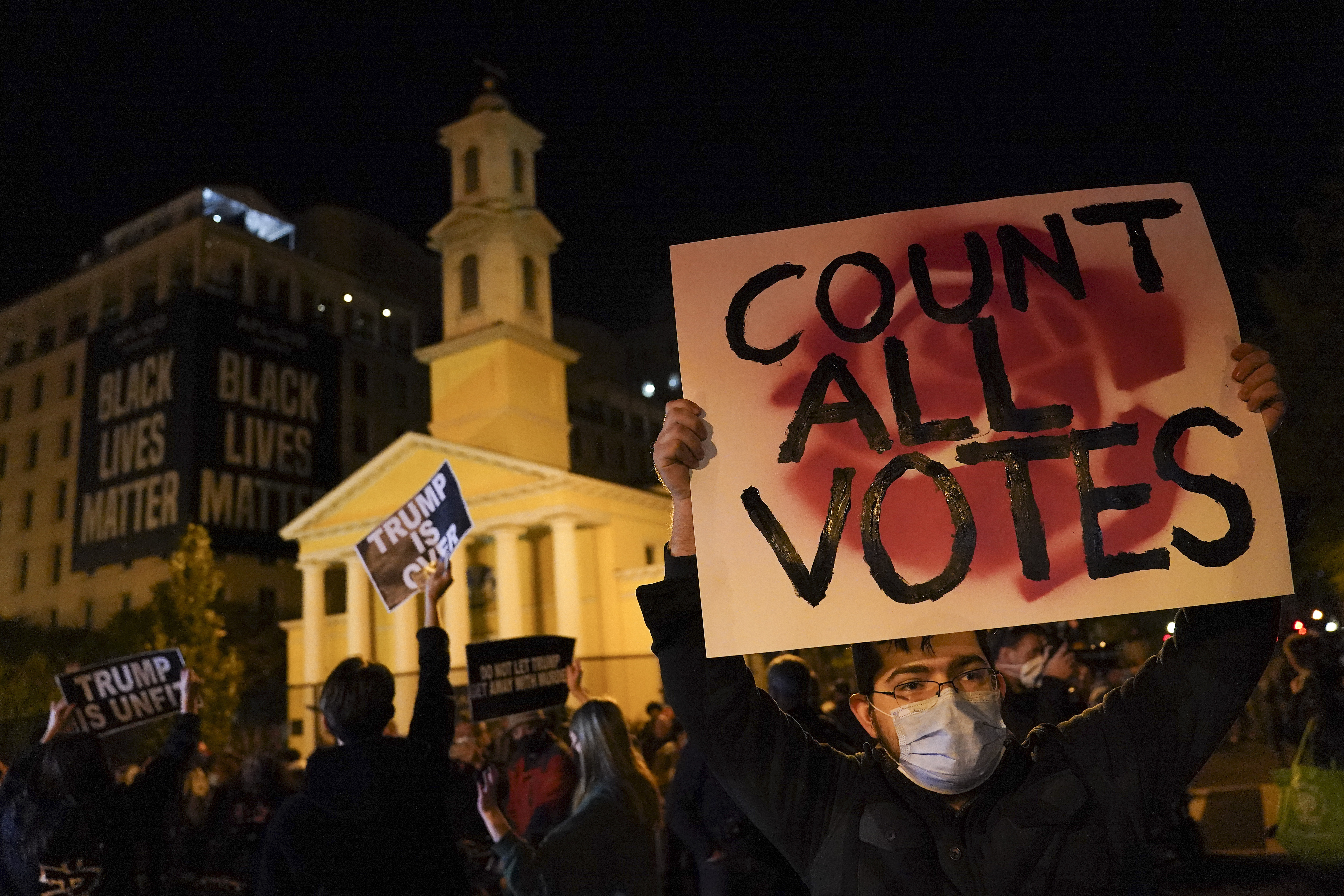Everyone knew that Trump would declare a premature victory. Social platforms still stumbled.

In a move that everyone knew was coming, President Trump announced in a speech at 2:21 a.m. EST this morning that he had won—long before enough votes were in to make that call. “We were getting ready to win this election,” he said. “Frankly, we did win the election.” He called for the counting of votes to stop and the outcome to be put into the hands of the Supreme Court. Social media companies anticipated such a move—so how did they react to stop such lies from spreading? Despite months of preparation, their performance was mixed.
No winner: With mail-in votes still being counted and legal battles looming, it may take days before a clear winner can be decided. Even longtime Trump allies condemned his lie. Chris Christie, former governor of New Jersey and Trump cheerleader, criticized the speech in an interview with ABC: “It’s a bad strategic decision. It’s a bad political decision.” Chris Wallace, a host on Trump’s favorite TV network, Fox News, said: “This is an extremely flammable situation and the president just threw a match into it. He hasn’t won these states.”
Platform policies: Stung by their mishandling of misinformation in 2016, platforms such as Twitter, Facebook, Instagram, and YouTube have adopted a raft of last-minute policies for this election designed to limit people’s ability to see and amplify false or misleading posts. Chief among these is labeling such posts and restricting people’s ability to share them.
Flagging posts: A couple of hours before his speech, Trump tweeted the false assertion that Democrats were stealing the election: “We are up BIG, but they are trying to STEAL the Election. We will never let them do it. Votes cannot be cast after the Polls are closed!” Facebook and Twitter both flagged this post as being misleading; Twitter hid it from view and disabled replies and likes. After Trump’s speech, Facebook and Instagram also added a generic note to their platforms saying that votes were still being counted and that the winner of the election had not yet been projected. Facebook also added a label to the video of the speech itself that reads: “Final results may be different from initial vote counts, as ballot counting will continue for days or weeks after polls close.”
Free to view: And yet elsewhere the full video of Trump’s speech is still up for anybody to watch, without sanction. On Twitter, it sits on Trump’s timeline right above his earlier hidden post about election stealing. This raises questions about tech companies’ ability to react as quickly to video content as they seem to be doing to text. According to the Washington Post, Twitter says that the video does not violate its policies. In comparison, some television networks, such as NBC News, cut Trump off mid-speech as soon as he started lying about winning. Anchor Savannah Guthrie said: “We’ve got to dip in here because there’ve been several statements that are just frankly not true.”
Today and for days to come, there will be more lies and deliberate attempts to mislead US voters and election followers around the world. For all their hand-wringing and talk, tech companies still aren’t on top of the misinformation problem. They need to step up.
Deep Dive
Humans and technology
Building a more reliable supply chain
Rapidly advancing technologies are building the modern supply chain, making transparent, collaborative, and data-driven systems a reality.
Building a data-driven health-care ecosystem
Harnessing data to improve the equity, affordability, and quality of the health care system.
Let’s not make the same mistakes with AI that we made with social media
Social media’s unregulated evolution over the past decade holds a lot of lessons that apply directly to AI companies and technologies.
Stay connected
Get the latest updates from
MIT Technology Review
Discover special offers, top stories, upcoming events, and more.